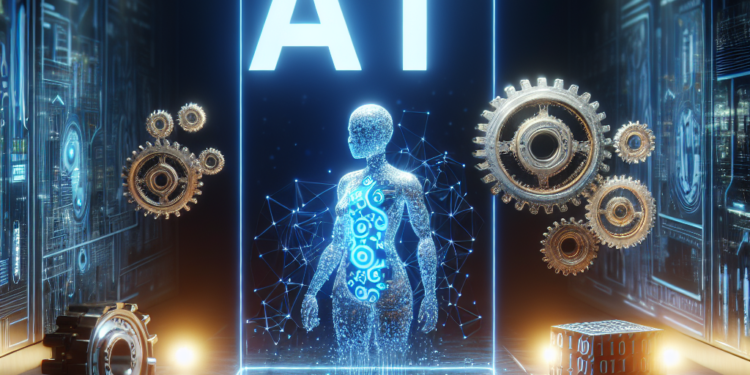Artificial Intelligence (AI) has come a long way since its inception, and with advancements in technology, researchers and developers are constantly working on improving its capabilities. From machine learning algorithms to deep learning techniques, AI development has seen significant progress in recent years. In this article, we will explore some of the advanced techniques in AI development that are shaping the future of this field.
One of the most important techniques in AI development is deep learning. Deep learning is a subset of machine learning that uses neural networks to model and process complex data. The use of deep learning algorithms has significantly improved the accuracy and performance of AI systems in various applications such as image and speech recognition, natural language processing, and autonomous driving.
Convolutional Neural Networks (CNNs) are a type of deep learning algorithm that is particularly effective in image processing tasks. CNNs have been widely used in applications such as facial recognition, object detection, and medical imaging. These networks are trained on large datasets of images to learn features and patterns that can be used to classify and identify objects in new images.
Recurrent Neural Networks (RNNs) are another powerful deep learning technique that is commonly used in natural language processing tasks. RNNs are designed to handle sequential data and are able to learn patterns and relationships in text data. This makes them ideal for applications such as language translation, sentiment analysis, and speech recognition.
Generative Adversarial Networks (GANs) are a more recent development in deep learning that have shown great promise in generating realistic images and videos. GANs consist of two neural networks – a generator and a discriminator – that work together to create new data samples. This technique has been used in applications such as image synthesis, style transfer, and video generation.
Transfer learning is another important technique in AI development that involves leveraging pre-trained models to accelerate the learning process on new tasks. Transfer learning allows developers to reuse knowledge from one domain to another, which can significantly reduce the amount of training data and computational resources required to build a new AI system.
One of the challenges in AI development is the need for large labeled datasets to train models effectively. To address this issue, researchers have been exploring techniques such as semi-supervised learning and self-supervised learning. Semi-supervised learning involves training models on a small amount of labeled data and a large amount of unlabeled data, while self-supervised learning involves training models to predict missing parts of the input data.
Another important technique in AI development is reinforcement learning, which involves training agents to interact with their environment and learn from the feedback they receive. Reinforcement learning has been used in applications such as game playing, robotics, and financial trading. One of the key advantages of reinforcement learning is its ability to learn complex behaviors and strategies through trial and error.
Evolutionary algorithms are another advanced technique in AI development that involves simulating the process of natural selection to optimize models and algorithms. Evolutionary algorithms are particularly useful in tasks such as optimization, design, and control. These algorithms are able to explore a large search space and find solutions that are often difficult to discover using traditional optimization methods.
In addition to these techniques, there are also emerging trends in AI development such as explainable AI, federated learning, and AI ethics. Explainable AI aims to make AI systems more transparent and interpretable by providing explanations for their decisions and predictions. Federated learning involves training models across multiple decentralized devices to preserve data privacy and security. AI ethics focuses on ensuring that AI systems are developed and deployed in a responsible and ethical manner.
Overall, the field of AI development is rapidly evolving, and researchers and developers are constantly exploring new techniques and approaches to advance the capabilities of AI systems. Deep learning, transfer learning, reinforcement learning, evolutionary algorithms, and other advanced techniques are shaping the future of AI and driving innovation in various applications. As AI continues to progress, it is important for developers to stay up-to-date with the latest advancements and developments in the field to create intelligent and efficient AI systems that can address complex real-world problems.













